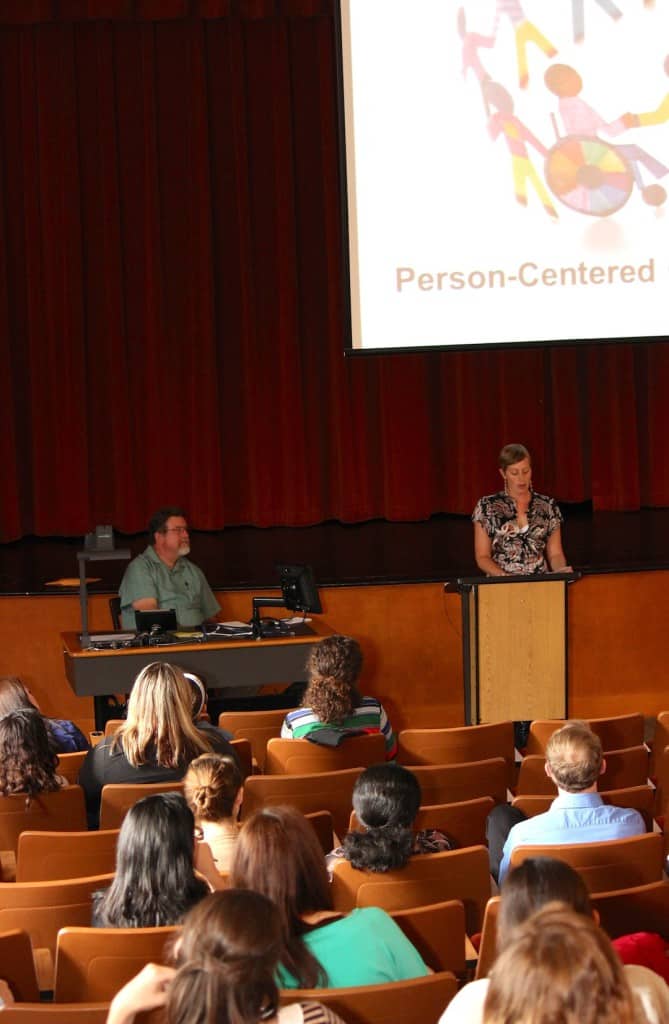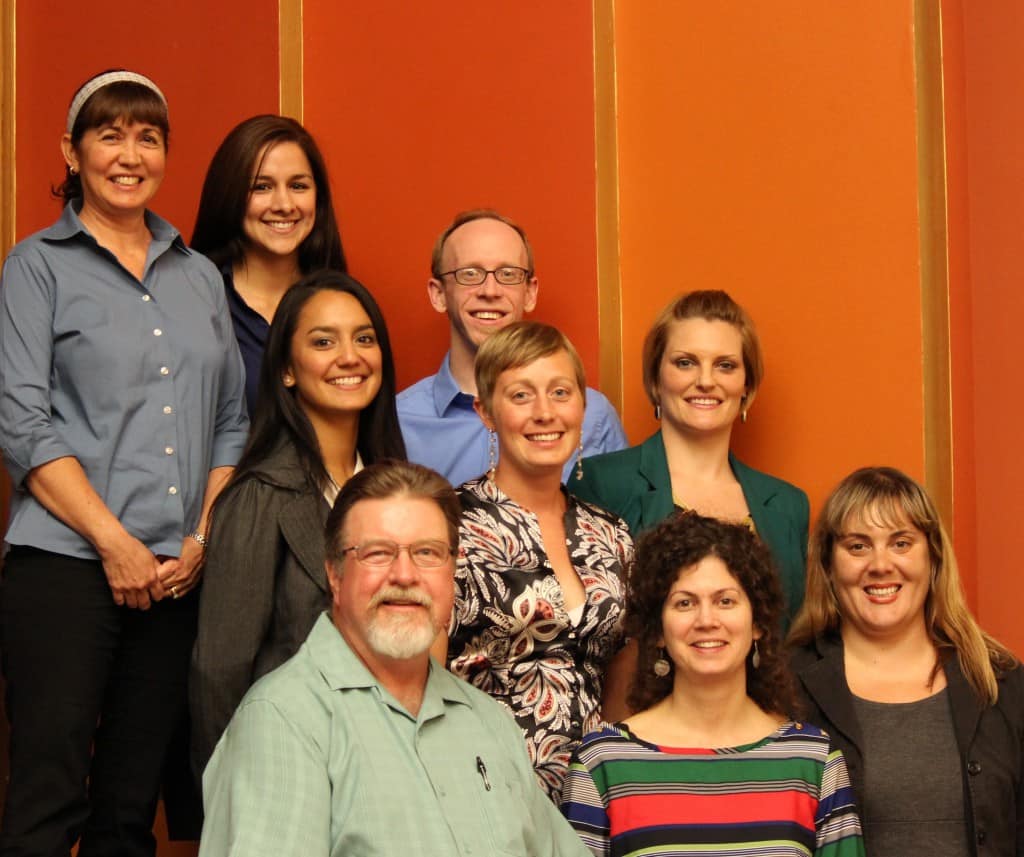In Japanese, Pecha Kucha means “chit chat.” During Pecha Kucha presentations, speakers showcase their work using 20 slides that automatically advance every 20 seconds, making each presentation exactly 6 minutes and 40 seconds in length.
This concise and fast-paced presentation format was chosen for the Spring 2013 Community and Administrative Leadership (CAL) Capstone Symposium, held at the Utopia Theater on two consecutive Tuesdays during the month of April.

The Master’s program CAL concentration* prepares social work students for macro practice in community, administrative, and policy practice settings. CAL graduates may work in community planning, social services management, and policy development, among other areas.
In Spring 2013 the program offered for the first time a CAL Capstone course. For this course, students designed projects using an evidence-based macro practice model tied to their field placements, and then completed the project during the semester.
“The goal of the project is to help students apply evidence-based approaches to address practice questions in macro settings,” said Dr. Cal Streeter, a former chair of the CAL concentration and the main force behind the organization of the symposium.
Students worked on themes as varied as veterans’ reintegration into the civilian job market, risk management for non-profits, the private prison industry, early childhood education, and barriers to mental health care for survivors of trauma.
Among the presenters was Kelly E. Chirhart, LBSW, whose project focused on systems change in organizations providing support to individuals with disabilities. Kelly developed this project as part of her field placement at UT Texas Center for Disability Studies, Institute on Person-Centered Practices. “People with disabilities, like all individuals, have the desire and the right to make their own decisions,” said Kelly. “Unfortunately, many organizations are not ready for that. For my project I designed a person-centered organizational framework to assist in mediating tensions and conflicts between organizations and the individuals they support. This framework can aid in transforming the organization and at the same time help individuals live the lives they want to live.”
Another student, Lori Axler Miranda, presented the work she did in regards to School Readiness Action Plan for Austin/Travis County. “This is a three-year community-wide plan that aims to increase the number of Travis County children who are kindergarten-ready by using evidence-based programs and services,” explained Lori. “I helped the plan’s leadership team clearly define the criteria for making decisions based on evidence. This shared understanding is essential for the successful implementation of plans like this, which require meaningful collaboration among different stakeholders.”
“This event highlights the cross-cutting knowledge and skills that our CAL students have, and the wide variety of issues and challenges they can tackle,” said Dr. Streeter. “I’m very proud of the work these students have done this semester, and I hope that this symposium will become an annual event.”
* In 2015 the CAL concentration changed to Administration and Policy Practice (APP).


